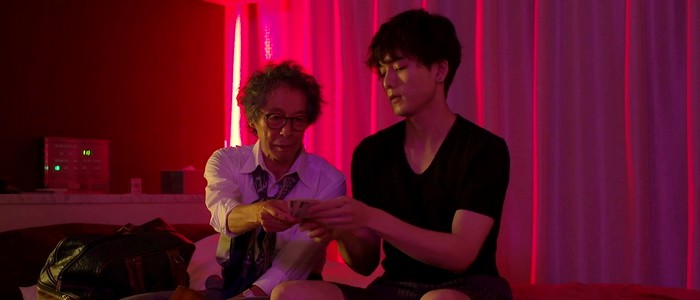
Old Narcissus Summary
Title:
老ナルキソス
Movie Info:
Japan (2023)
Genre:
Drama
About:
Old Narcissus is a mature & interesting film.
Is Old Narcissus BL?
Yes, it includes a gay romance.
Plot
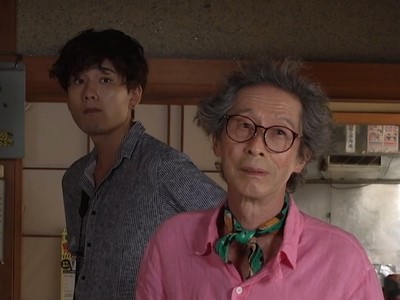
Yamazaki is a senior man in his seventies. He has a prolific career as a picture book illustrator. His most famous title is Monta, a story about a bagworm moth with a morality lesson. Monta is about to celebrate its 50th anniversary. Yamazaki has planned to release a new book, yet he doesn't seem inspired. His editor, Ekoda, keeps pressuring him to submit the new work.
Yamazaki maintains an active sex life. He hires Leo, an escort in his twenties, to engage in wild bedroom activities. In particular, Yamazaki loves getting spanked. After their sexual encounter, the couple heads to a bar owned by Yamazaki's friend, Shinobu. As they chit-chat, Leo is impressed by his client's career. Leo was an enormous fan of Monta and adored the book as a child. He is overjoyed to meet its creator and wants to stay in touch.
Yamazaki pays another anonymous man for sex, but the hookup goes awry. He is tied up and gets attacked in a homophobic bashing. A distressed Yamazaki calls for help, and Leo comes to his rescue. After being freed, the traumatizing experience makes Yamazaki want to kill himself. He tries jumping off the rooftop, but Leo saves him again. Yamazaki feels hopeless, claiming he doesn't have youth or talent anymore. Even so, Leo encourages him to live.
Yamazaki discovers he has testicular cancer. The doctor encourages him to receive treatment before the tumour grows. Yet, Yamazaki is reluctant because he worries about it affecting his sex drive. He describes hormone therapy as "castration by medicine". Yamazaki meets up with Leo and reveals his diagnosis. Leo, who lacks a father figure throughout his life, offers emotional support. Yamazaki continues to hire this escort on an ongoing basis. Besides sex, they meet up for meals and other recreational activities.
Outside of escorting work, Leo is dating Hayato. They have been together for over two years. Hayato knows about his boyfriend's profession and has no problem with it. Hayato comes from a loving family who accepts their gay son without judgment. His parents want him to sign up for the partnership program, which offers marital benefits to same-sex couples. While Hayato is interested, Leo hesitates to commit. Leo, who didn't have a loving childhood, doesn't know if he wants to start a family with his partner.
Old Narcissus Trailer
Old Narcissus Cast
Characters
Yamazaki
Taijiro Tamura (田村泰二郎)
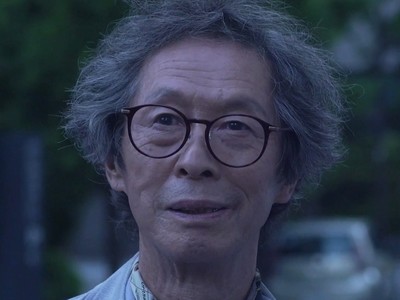
Yamazaki is a famous picture book illustrator in his seventies. His most famous title is Monta, which was released fifty years ago and gained him much recognition. Yamazaki maintains an active sex life and hires young escorts for pleasure. He continues an ongoing relationship with Leo. Yamazaki has no family and hardly any friends. He only stays in touch with Shinobu, a bar owner.
Taijiro Tamura
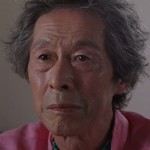
Taijiro Tamura (田村泰二郎) is a Japanese actor. He is born on September 25, 1948. His first BL project is the 2017 short movie, Old Narcissus. He also stars in its 2023 remake, Old Narcissus.
Leo
Atomu Mizuishi (水石亜飛夢)
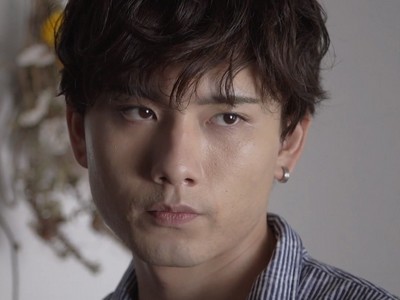
Leo is a 25-year-old escort. He sleeps with Yamazaki and continues an ongoing relationship with his client. Leo is impressed by Yamazaki's career as a picture book illustrator. He used to adore Monta as a child. Leo is in a two-year relationship with Hayato, who knows about his boyfriend's profession. Hayato wants to legalize their relationship through a same-sex union, but Leo seems hesitant about the idea.
Atomu Mizuishi

Atomu Mizuishi (水石亜飛夢) is a Japanese actor. He is born on January 1, 1996. His first BL project is a supporting role in the 2022 drama, Old Fashion Cupcake. He also appears in the 2023 series, My Personal Weatherman. His other roles include Old Narcissus (2023) and Wheels and Axie (2023).
Supporting Cast
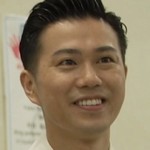
Hayato
Takeshi Terayama (寺山武志)
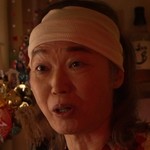
Shinobu
Hiderou (日出郎)

Ekoda
Masako Chiba (千葉雅子)

Mikki
Kunio Murai (村井國夫)

Shimamoto
Morooka Moro (モロ師岡)

Young Yamazaki
Riku Tanaka (田中理来)

Doctor
Kanji Tsuda (津田寛治)

Clerk
Ayako Shiina (椎名綾子)

Young Mikki
Atsushi Shingaki (新垣篤)

Young Shinobu
Shinnosuke Takahashi (高橋慎之介)

Young Shimamoto
Fumitaka Endo (遠藤史崇)

Young Haruo
Ronpei Araki (荒木ロンペー)

Monta
Cast Highlights
- Leo's actor (Atomu Mizuishi) has supporting roles in various BL dramas, including Old Fashion Cupcake (2022) and My Personal Weatherman (2023). He is also one of the leads in the 2023 movie, Wheels and Axie.
- The actor who portrays the doctor (Kanji Tsuda) has a supporting part in the 2022 Japanese drama, Double.
Old Narcissus Review
Review
Movie Review Score: 7.6

Old Narcissus features a gay protagonist in his 70s, an underrepresented demographic rarely showcased in cinema. A movie about Young Narcissus with hunky actors in their 20s would have been the more commercially viable idea. Yet, the filmmaker centres the story on an elderly lead, even if it means defying industry norms. I admire his determination to bring a marginalized group to the forefront. We need films celebrating age diversity in LGBTQ+ media, so Old Narcissus is a noteworthy contribution.
The story explores aging from a gay man's perspective. It highlights the disadvantages, like how the lead doesn't have a partner or children to care for him in his old age. His loneliness is a symptom of growing up in a conservative society. Also, the movie examines the cultural differences between two generations of gay men. The protagonist's struggles contrast with a younger couple, who enjoy more freedom due to progressive attitudes. Yet, they still face limitations, indicating the need for further equality. I appreciate Old Narcissus for tackling these significant LGBTQ+ topics.
Despite the meaningful themes, Old Narcissus needs a sharper script to convey its messages effectively. The inelegant writing relies on cliches and dated tropes. Also, Yamazaki doesn't offer the best representation for older gay men. He's self-centred, sex-crazed, and stereotypically shallow. From bitter remarks to callous antics, this dodgy protagonist has many flaws. His values differ so drastically from mine that I find him unappealing and unrelatable. That said, Yamazaki's actor (Taijiro Tamura) is quirky and carries the role with a colourful eccentricity.
Old Narcissus embraces sex. I respect this cheeky, irreverent movie for challenging the stigma against sexually active seniors. Age shouldn't restrict affection. However, the story goes overboard and comes across as lewd. Yamazaki spends half his time cruising for dick. Casual hookups are his top priority, overshadowing other facets of his identity. Also, he has a contentious fifty-year age difference with his sex partner. The movie alludes to the couple's physical intimacy without much explicitness. Regardless, their lustful relationship may not suit everyone's tastes.
Leo, the younger protagonist, is a less compelling character. Firstly, he's bland and lacks charisma, displaying little enthusiasm throughout the film. Secondly, his characterization seems superficial. He mentions his daddy issues and commitment phobia, but I don't know much else about him. The story fails to examine his thoughts, feelings, or history deeply. And thirdly, his romance with Hayato is so dry! This couple is supposed to be dating, yet they hardly flirt or dote on each other. Their dull relationship scenes don't convince me they have a close bond.
Old Narcissus has a thoughtful ending. It uses Yamazaki's picture book to demonstrate his introspection with the valuable lessons he has learned. I like the powerful message about aging gracefully. However, Leo's storyline rushes to a flimsy resolution. The movie should've trimmed a few gratuitous sex scenes and used that time to refine his character more. Although not perfectly executed, Old Narcissus still leaves a positive impression. I'm glad to have a unique LGBTQ+ film with a mature lead, complex themes, and a brazen approach to sexuality.
Summary
Meaningful story
Old Narcissus focuses on a senior protagonist and explores his struggles with aging. The story highlights LGBTQ+ topics seldom explored in media. Some moments come across as cliched or lewd.
Lustful romance
The movie has a predominantly lustful vibe. It embraces sex, challenging the stigma around age and intimacy. However, there's a contentious 50-year age difference between the leads.
Quirky acting
Yamazaki's actor (Taijiro Tamura) brings quirkiness to his role. He carries the film with a colourful eccentricity. He plays a significant part in making the character feel memorable.
Happy ending
Old Narcissus has a happy ending where Yamazaki overcomes his insecurities. He learns a valuable lesson about aging gracefully. Leo also conquers his lifelong commitment issues.
Awkward artistry
Despite a handful of racy encounters, the awkward filming technique diminishes the eroticism. The camera goes annoyingly out of focus or positions itself at unintuitive angles.
76%
Old Narcissus is a unique movie with a gay elderly protagonist, highlighting his experiences with aging. Despite its lewdness, the story has meaningful messages and explores LGBTQ+ topics.
Old Narcissus Movie Explained
Analysis
- Narcissus
- Loneliness
- Aging
- Death
- Yamazaki & Leo
- Generations
- Young Narcissus
- Mikki
- Family
- Companion
- Rescue
- Legacy
Narcissus
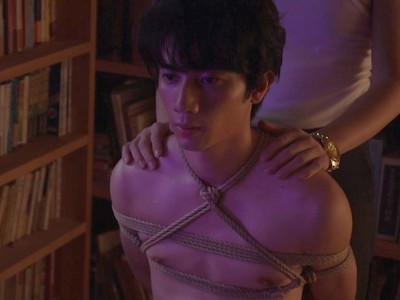
Narcissus is a character in Greek mythology who falls in love with his reflection in the water. Consumed by vanity, he never leaves his image, withers away, and eventually dies. The story is a cautionary tale about the dangers of excessive self-love. A part of this morality lesson applies to the movie's lead character, Yamazaki. He's a self-absorbed narcissist who overindulges in personal desires, particularly his sex life. The egotistical choices in his youth now haunt him in his old age.
Beyond a cautionary tale of vanity and indulgence, Narcissus also warns about loneliness. The character is so self-absorbed that he rejects everyone around him. Consequently, he becomes detached from the world and fails to form meaningful connections. The same theme applies to Yamazaki, who had neglected his interpersonal relationships due to self-centredness. For decades, he only cared about hooking up with random men. Now, Yamazaki is a frail senior in his seventies, diagnosed with a terminal illness. He finds himself isolated instead of being surrounded by loved ones.
Loneliness
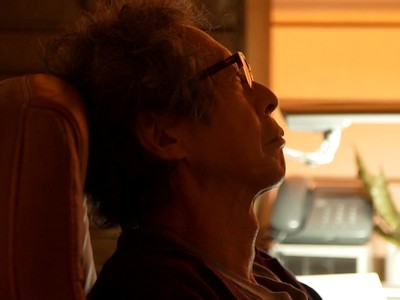
A part of Yamazaki's loneliness stems from his standoffish demeanour. This bitter and bitchy curmudgeon isn't the easiest person to get along with. For example, his friend invites him to a potluck for single elderly gay men to meet together. The goal is to build camaraderie in the community. Yet, Yamazaki mocks the idea, describing it as "a pick-up joint for old guys". Later, he complains about the cooking. You can see how Yamazaki would alienate others with such an unpleasant attitude.
Yamazaki's loneliness also stems from a conservative society where he cannot be openly gay. He grew up in a family where his strict father beat him for drawing pictures because it was "too girly". You can imagine a same-sex romance comes with severe consequences. Yamazaki dated in secret and had a serious boyfriend during his youth. Yet, Yamazaki dumped Mikki since he couldn't envision their relationship working out. He must give up his happiness with a long-term romantic partner due to the homophobic culture. Ultimately, it led to his solitude.
Aging
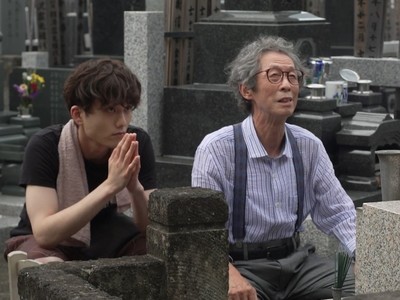
Yamazaki's loneliness became more pronounced as he grew older. During his youth, he didn't mind solitude so much. Bachelorhood came with its perks, especially for getting laid. He entertained many romantic partners who kept him company over the years. However, his single lifestyle loses its allure as he ages. Now in his seventies, few available men want to hook up with Yamazaki. He must pay escorts for companionship. While these sex workers offer momentary pleasure, they aren't there for him in the long term.
Worst of all, Yamazaki's health has declined. Another consequence of aging is that illness takes over your body. Unfortunately, the doctor has found a tumour. There's still a chance of survival, but only if he seeks treatment. Yet, Yamazaki is alarmed because the medication would stop his sex drive. Not only is sex his favourite activity, but it helps alleviate his loneliness. While those escorts may not stick around for long, they still provide some form of companionship. Without the ability to have sex, Yamazaki loses a significant social connection and feels even lonelier than before.
Death

Yamazaki has stewed in his discontentment for a while. He feels helpless about his life, from health troubles to a fear of loneliness. Each day, he loses the will to live more and more. What pushes him over the edge is when an anonymous hookup goes wrong. He suffers a homophobic bashing during the encounter. Sex, which used to provide Yamazaki comfort, has become a source of trauma and danger. The incident exacerbates his suicidal despair. He tries to kill himself on the rooftop, but Leo comes to the rescue.
Leo is the hooker with a heart of gold. Initially, he sleeps with the older man for money. Over time, he grows attached to his client and cares for his well-being. After stopping the suicide attempt, Leo continues to meet up with Yamazaki. While they still have sex, Leo also accompanies his client to other activities. They see the cabaret, play baseball, and go to potlucks. Their relationship develops beyond physical pleasure. Leo's extended presence eases Yamazaki's loneliness, making him happier. Leo becomes one of Yamazaki's motivations to keep living.
Yamazaki and Leo
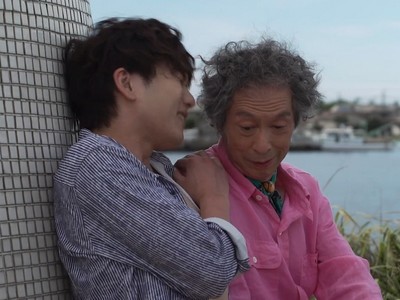
Yamazaki and Leo have a complicated relationship. They began as an escort and his client. During each meeting, Yamazaki would pay Leo to have sex or attend events together. At one point, Leo stops accepting the cash. He's willing to spend time with Yamazaki for free, like a charitable hooker who works pro bono. By refusing the money, it shows how their bond has evolved. Leo's incentive isn't monetary. Instead, he genuinely enjoys Yamazaki's companionship. They're like buddies who hang out and hook up.
Yamazaki sees Leo as a trophy. He loves flaunting his escort to others, introducing him as his boyfriend. From his perspective, he gets bragging rights for having a young man fawn over him. However, Leo has a different mindset. As a kid, he adored Yamazaki's picture books. He transfers a part of this admiration into their bond. In addition, Leo feels a void in his childhood due to an absentee father. As a result, he has developed a psychological complex around older men. Leo yearns for a mature male figure in his life, shaping the dynamics of his relationship with Yamazaki.
Generations
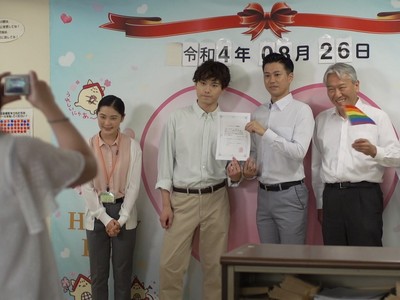
With a fifty-year age gap, Yamazaki and Leo represent two generations of gay men. Yamazaki comes from an old era with less fortunate circumstances. LGBT awareness was limited, so people acted more ignorantly. He recalls Haruo dying from the AIDS pandemic. Haruo's friends must keep his hospitalization and cause of death a secret due to the taboo nature. That was only one example, but homophobia trickled across many other areas of life. Yamazaki grew up in a time where he was severely disadvantaged for being gay.
Fortunately, times have changed for the better. Leo and his boyfriend Hayato enjoy more freedom as a gay couple. Unlike Yamazaki's family, Hayato's parents support his relationship with another man. Also, he and Leo can sign up for a partnership program in their municipality. This same-sex union grants them some of the spousal rights married couples receive. Compared to the past, society is becoming progressive. Despite the improved conditions, Leo & Hayato still face disadvantages. It will take more time and generational change to achieve complete LGBTQ+ equality.
Young Narcissus
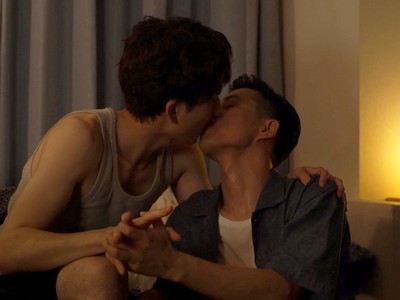
Hayato wants to settle down with his boyfriend through the partnership program. After dating for over two years, he believes they should make long-term plans. Hayato compares them to a straight couple who would've gotten married and started a family by now. However, Leo seems reluctant. Leo, who grew up in a broken home, associates commitment with the negative experiences from his past. He prefers to fly solo, enjoying the freedom of not attaching himself to anyone.
You may have noticed the parallels between Leo and Yamazaki. Both promiscuous leads share similar journeys. Like his younger counterpart, Leo once had an opportunity to settle down with his partner. Yet, he turned down Mikki and wilfully chose a single life. Spending time with Yamazaki makes Leo realize he doesn't want to grow old without a companion. Yamazaki's loneliness paints a cautionary tale about living narcissistically. As a result, Leo overcomes his commitment phobia to become Hayato's lifelong partner. Leo rescues himself from following in Yamazaki's footsteps.
Mikki
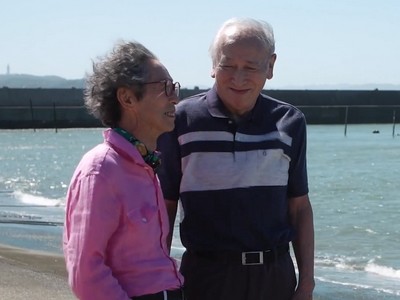
Yamazaki used to have a Hayato figure during his youth. Mikki was devoted to him and wanted to start a future together. Life was more brutal for same-sex couples back in the day, yet Mikki still dared to give their relationship a go. However, Yamazaki didn't want to take the risk. The cost of being openly gay meant his parents would cut ties with him. Faced with a dilemma, he prioritized family duties and broke up with his boyfriend. Thus, the love of his life became the one who got away.
Although Yamazaki initiated the breakup, circumstances forced Leo to make this difficult decision. Had the couple lived in modern times, their relationship may have lasted due to a more supportive culture. Yamazaki is a victim of his era. Decades later, the former lovers reunite as two seniors reminiscing about their past. "We've both gotten old, huh?" Mikki tells his ex as they hold back tears. Society has denied the couple from being together, squandering many years of their potential happiness. What should have been a lifetime of love and companionship was tragically destroyed.
Family
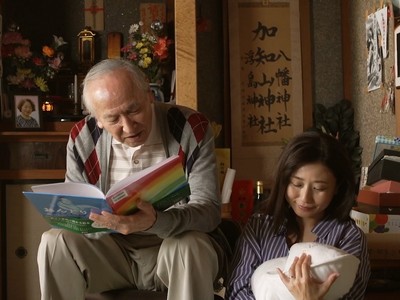
Despite their poignant reunion, Yamazaki grows upset after meeting Mikki's daughter and grandchild. Yamazaki assumed his old lover was like him, grappling with solitude. Instead, Mikki is married and has kids. Mikki chose a path in life Yamazaki had assumed was unavailable for gay men like them. He feels devastated by the missed opportunity. It should have been him to start a family with Mikki. His ex once promised lifelong companionship, yet he fulfilled the domestic dream with someone else.
Yamazaki had stayed true to himself. Years ago, he turned down a chance to marry his female editor, who desired to have kids with him. If Yamazaki wanted to settle down with anyone, it would have been with Mikki. Yet, his ex found a replacement and built a loving family. Thanks to his daughter and grandchild, Mikki doesn't worry about solitude in his old age. It's irrational of Yamazaki to assume his former lover would stay single after their breakup. Nonetheless, he feels betrayed. Seeing his ex surrounded by family warmth highlights Yamazaki's loneliness and evokes a profound sense of loss.
Companion
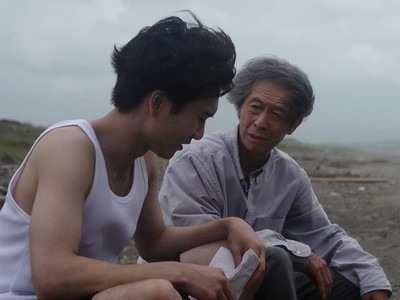
As Yamazaki nears the end of his life, he comes to a daunting realization. He doesn't want to die alone. Yamazaki agonizes over having the same demise as Narcissus, withering away in pitiful solitude. The fear of dying without a loved one is a universal concern, particularly among the LGBTQ+. Many gay seniors are like Yamazaki, deprived of traditional family support. They don't have a partner, offspring, or surviving relatives for companionship. Yamazaki's situation is worse since he also lacks close friends. This loner has nobody to care for him.
Driven by desperation, Yamazaki makes a last-ditch effort to secure an end-of-life companion. He tries to adopt Leo as his son, using this family status to bind them together. Adopting your sex partner is highly peculiar, but it's one of the alternatives since they can't marry. Yamazaki uses a legal loophole to create a familial connection. However, Leo isn't desperate and rejects this inappropriate arrangement. Not even Yamazaki's inheritance can tempt him. Sadly for Yamazaki, he can't use money to buy Leo's loyalty. He must confront the rest of his life without a companion.
Rescue

Following Leo's rejection, Yamazaki succumbs to an erratic state of mind. He misconstrues Leo's response as another heartbreaking betrayal. How dare you deny my happiness!? Yamazaki reacts by lashing out in violent rage. He tries to strangle Leo, but the younger man overpowers him. Soon afterwards, Yamazaki falls further into emotional turmoil. He sees a bleak future of eternal loneliness, driving him to suicidal despair. Yamazaki is ready to end his suffering and marches into the sea to drown himself.
Leo is upset since Yamazaki assaulted him moments ago. He walks away, wanting nothing to do with his attacker. Let him perish! Yet, Leo's conscience weighs on him. Regardless of his vendetta, he turns back and rescues the drowning man. Like a repeat of a previous scene, Leo has stopped another suicide attempt. His heroic acts aren't only due to kindness or obligation. Leo keeps saving Yamazaki because his life is worth living for. Contrary to what the hopeless protagonist thinks, a solitary existence isn't as dire as it seems. Yamazaki should never give up on himself.
Legacy
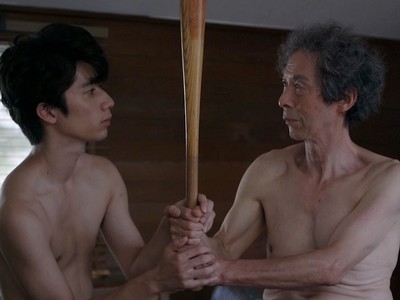
Despite surviving a second suicide attempt, Yamazaki continues on a self-destructive downward spiral. He blames himself and regrets making life choices that led to his loneliness. Yamazaki could've pursued his relationship with Mikki instead of giving up. Or he could've put more effort into finding a partner rather than enjoying casual hookups in his youth. Yamazaki feels like a miserable failure for dying alone. There must be a disheartening reason why nobody wants to be with him. He's too ugly? Too old? Too damaged?
Yamazaki takes a baseball bat and plans to demolish the baseball trophy from his youth. This award represents a time when he had potential. Now, it symbolizes his perceived failures, regrets, and unfulfilled aspirations. Smashing it expresses Yamazaki's frustration with how his life turned out. His younger self appears and stops the destruction, like a sudden moment of enlightenment. Yamazaki realizes he shouldn't spend his final days ruining decades of past achievements. Rather than dying with a bitter reputation, he wants to be remembered for leaving a proud and positive legacy.
Old Narcissus Ending Explained
Ending
Shadow

Old Narcissus has a happy ending where Yamazaki comes to terms with his mortality. He stops his self-destructiveness and channels his energy on more productive endeavours. Notably, Yamazaki finished his latest picture book, overcoming a creative slump. He transforms his experiences into introspection for the book's protagonist. Using cryptically coded words and deceptively simple drawings, Yamazaki expresses his feelings about dying alone. The poignant messages reflect the valuable lessons he has learned.
The book's protagonist is a prideful rooster who resembles Yamazaki. This rooster has a shadow, which symbolizes solitude. The protagonist admires his silhouette during the day, similar to how Yamazaki enjoyed being single in his youth. His shadow enlarges when he brags, reflecting how he alienates others with his behaviour. The shadow grows even larger, following Yamazaki everywhere and consuming his thoughts. It symbolizes Yamazaki's insecurity about dying alone as he ages. Loneliness scares him, but he can't get rid of his solitude.
Rainbow
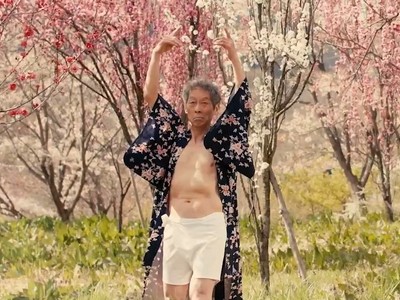
The rooster finally escapes the shadow after his demise. Yamazaki can only stop worrying about dying alone when he dies. Upon the rooster's death, he leaves behind a beautiful rainbow for his friends to admire. This rainbow represents Yamazaki's legacy. It is how others will remember him after his passing. Instead of worrying about his shadow, Yamazaki realizes he should focus on his rainbow. Yamazaki should cherish his positive impact on others rather than dwell on his loneliness.
Yamazaki's legacy is an accomplished career as a picture book illustrator. His philosophical tales can inspire generations. In a montage, we see Mikki's granddaughter and Hayato's foster child listening to these stories, capturing Yamazaki's impact. Also, Yamazaki sent book samples to his friends, even though their relationships had soured. It's his way of making amends to Leo, Shinobu, and others. After Yamazaki dies, please don't think of him as bitter, vengeful, or miserable. Instead, remember him for his positivity and resilience as he makes peace with dying alone.
As Yamazaki narrates his book's passages, the movie includes scenes of him dancing among the cherry blossom trees. It's a quirky way of depicting his enlightenment. He no longer agonizes over his solitude. Instead, Yamazaki is determined to age gracefully and depart the world in a positive state of mind. The final scene also shows him using an app to hook up with a young man. It's another indicator that aging has not gotten the best of him. Until his final day arrives, Yamazaki will continue being his unapologetic self, doing what he loves the most.
Old Narcissus Information
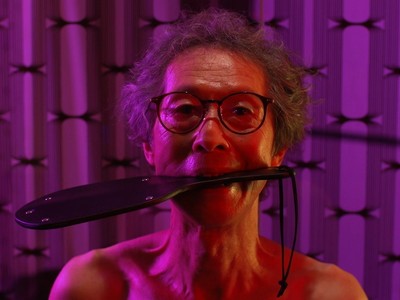
- Start Date May 20, 2023
- Movie Length 1 hour and 50 minutes
Old Narcissus is a Japanese movie that released on May 20, 2023. It is a long film, which you can finish in around 1 hour and 50 minutes. Shoji Tsuyoshi (東海林毅) is the movie director.
Old Narcissus began as a short movie released in 2017. The film was around 20 minutes long. The 2023 remake takes the original story and expands upon it significantly.
Links
- MyDramaList Old Narcissus MyDramaList
- Twitter Old Narcissus Twitter
- Website Old Narcissus website
- YouTube Old Narcissus YouTube
Director

Shoji Tsuyoshi (東海林毅) is a Japanese director. He has worked on the 2017 short movie, Old Narcissus. He also led the 2023 full-length remake, Old Narcissus. In addition, he directed The Fish with One Sleeve (2021), a short film about a trans woman.